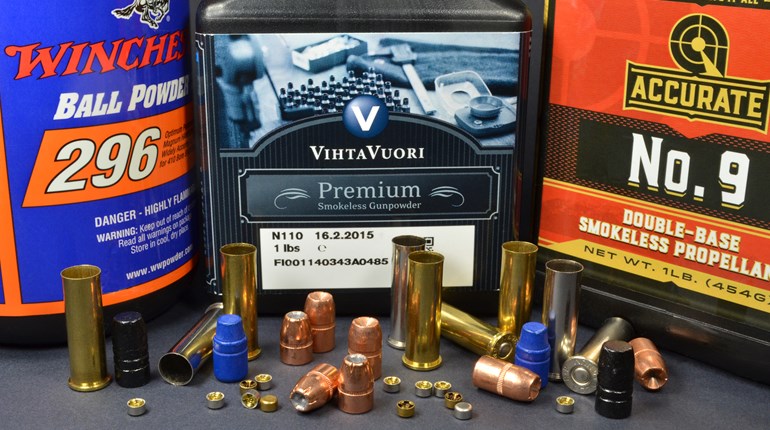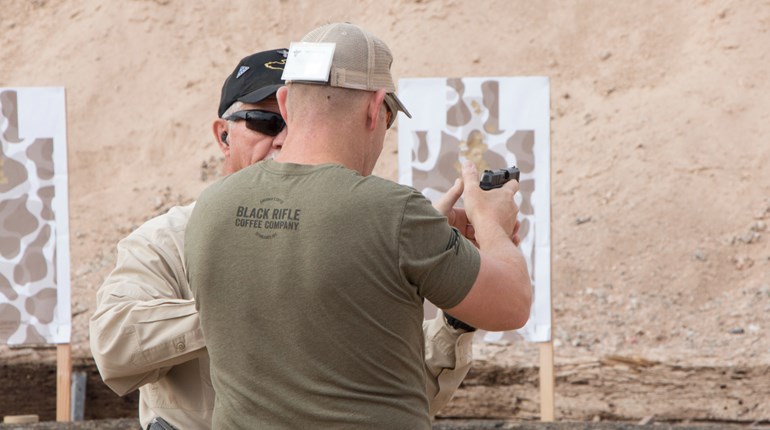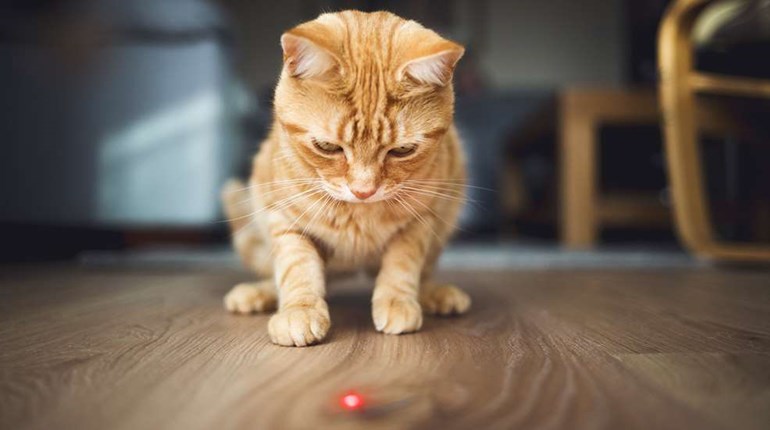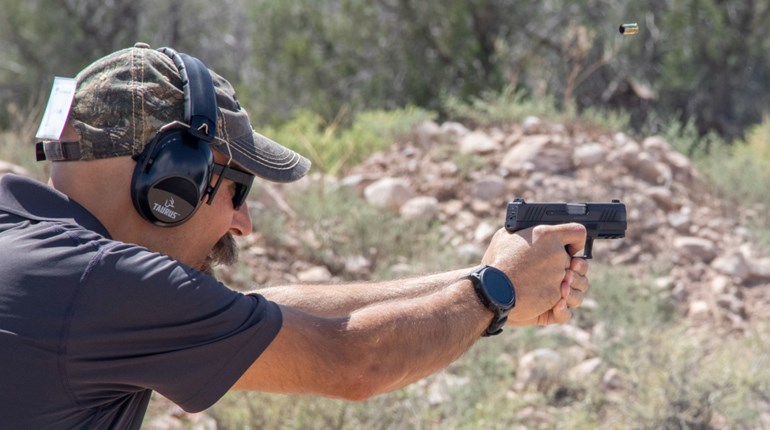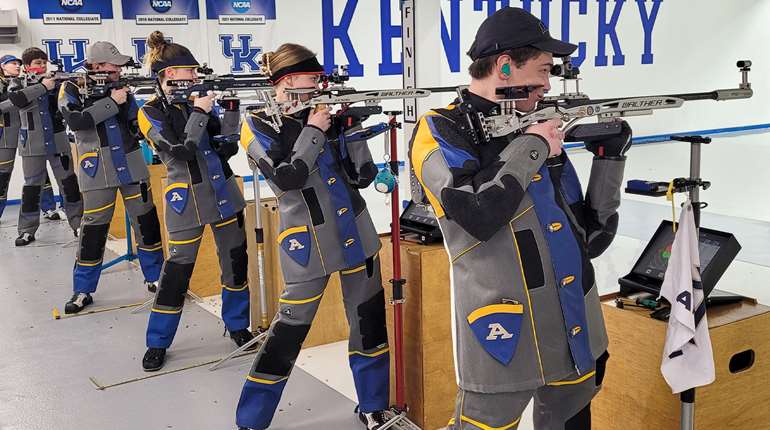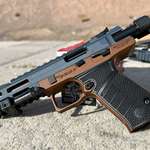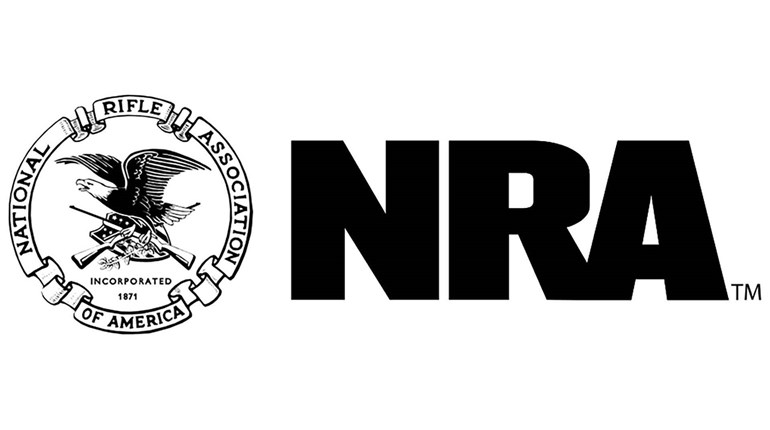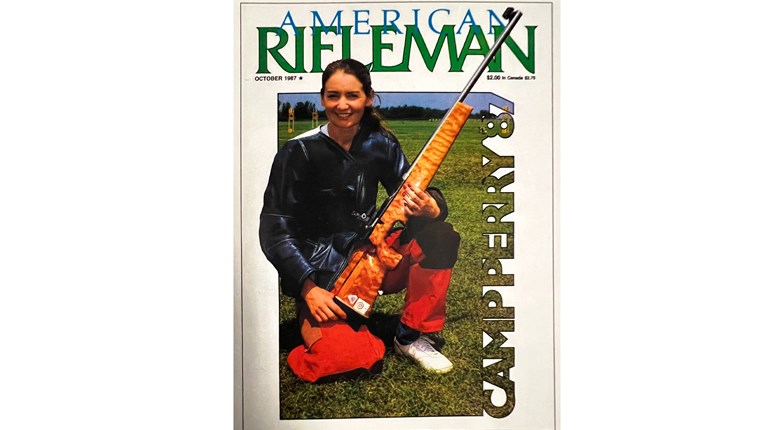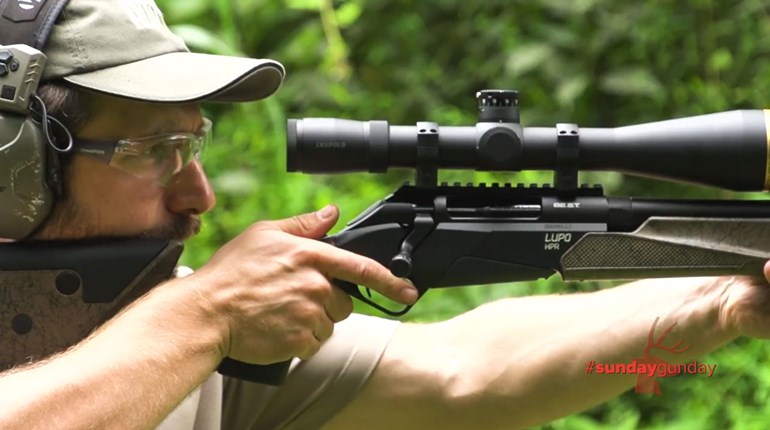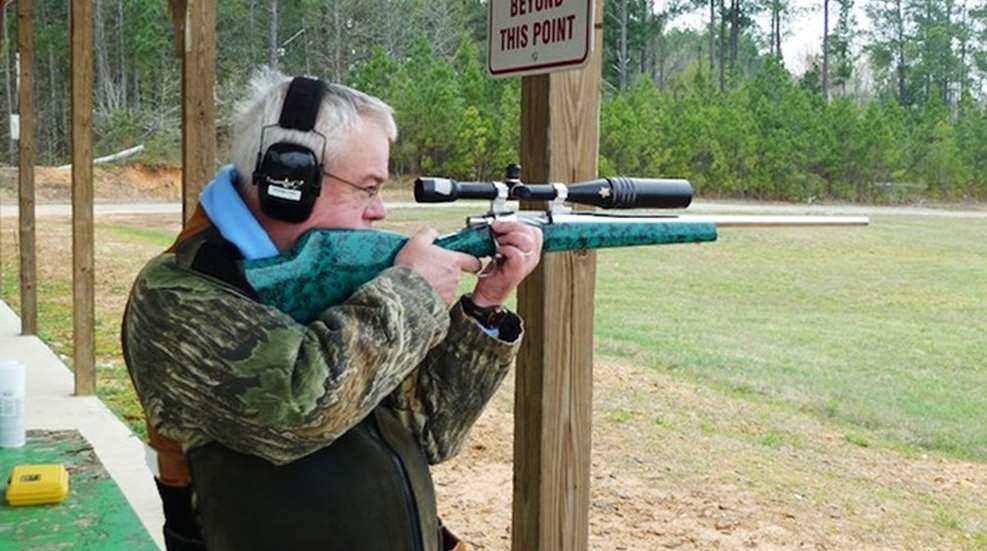
From the vault: Tips on sight picture, breath control, confidence and more for competitive shooters with 1983 and 1984 National Silhouette Smallbore Rifle Champion John Rost. As transcribed from a 1984 NRA National Silhouette Championship seminar where Mr. Rost was a panelist.
Silhouette Question and Answer with John Rost
Q: What are you looking at and thinking about as you aim at the animal? Are you aware of your wobble area?
A: I am thinking about a perfect sight picture. If you want to hit the center, you have to make you subconscious self aware of what you want it to do. You are being a guide for the subconscious self.
Q: Do you close your eyes as you make your mental image?
A: Sometimes it is helpful to close your eyes because it makes it a little easier to close out the rest of the environment, become secluded, and think about what you want. On a bright day, I often find it difficult to close my eyes and then open them to the light, so I usually only do that indoors when I'm shooting air rifle.
Q: What happens when you are on your sixth or seventh ram and suddenly have disturbing thoughts about missing it?
A: If I have any question whatsoever, I decide not to shoot. Then I go back to imagining a perfect shot and start over again. Some shooters will put the gun down and start again physically as well as mentally, because they're more comfortable starting at the very beginning. This isn't difficult if you are disciplined.
Q: How do you get that confidence?
A: I have read a good deal of literature on the subject, but was especially influenced by The Inner Game of Tennis by Timothy Gallwey. His hypothesis is that there is a Self 1, the conscious self, which thinks and organizes everything on the outside, and a Self 2 which is your subconscious self.
I apply this theory to shooting, and here is an illustration. You know how to shoot; your body knows how to shoot, but suddenly your conscious self, your ego, Self 1, jumps in and says, "Wait a minute, you've got 7 rams." The pressure builds up, and you feel nervous and aroused. At this point, you need to relax and come back to letting your subconscious self, Self 2, continue. This is important, especially if you have a very aggressive feeling. This is the time when you need to relax and feel your body in space.
There are variables and things you could add from your own experience, but the important thing is to have a very basic, concrete way to get a grasp on things when they begin to get out of control.
Q: What happens when you have the sight picture in your mind, but you can't get it right on the target? Sometimes it takes me a minute or more to get the shot off. Physically, I can't seem to hold on that one animal.
A: That has happened to me; I experience the same problems everyone else does. I have taken an oath and promised myself that even if I have to hold a minute on one ram or turkey and then a minute on the next, I'll do it if it's necessary. I'll be darned if I have to shoot a miss because it was my error. I would rather sacrifice three later on because of time than to miss the first two. That's my own personal feeling, and I don't suggest you take that attitude unless you feel strongly about it.
With my hold, I am not holding on the dot, but moving around quite a bit. I suggest that you try to find a pattern to your hold and exercise some of the trigger control techniques Colonel Wigger has suggested.
Q: Sometimes I'm moving at the top of the target and other times at the bottom. What can I do about this?
A: I find that my body position is very important. Occasionally, I find that I change my body position as I move across rows. When I shoot indoors on a target that has three rows, I have to change from one row to the next. If your hold is moving from one side to the other, draw an imaginary line to the target and move your feet to compensate. For vertical problems, check on the angle of your arm. I have trouble getting high enough and my hold settles just below the animal, so I pull the trigger at the high point in my pattern. I don't actively hold it on the animal.
Q: Do you ever use breath control to raise the rifle?
A: Yes, I have used breath control to raise the rifle, but prefer to try as many other things as I can before I use breathing.
Q: How much time do you have to devote to mental rehearsal before your subconscious takes over?
A: I wish I knew. I did a lot of shooting before I went to college. In college, I shot four, five and sometimes six times a week, so a lot of these steps came automatically without my thinking about them. Now I dedicate most of my time to practicing my mental routine once my physical routine is complete. If I have some anxiety, I might count more on the relaxation part of my technique.
If you find yourself shooting the same scores year after year without improvement, I suggest that you ask yourself, "What do I think about when I shoot?" If you don't have an answer, I think you have a problem. You might be able to get away with that at practice, but in a match, you have to have some steadfast principles you can use and rely on.
I have a mental toolbox, and it's getting bigger every year. I almost have to carry it around on my shoulder now. I have a trick for almost everything that I encounter because I've stockpiled them. They are all in my notebook. It's my bible, everything is down on paper. I try to make a systematic approach so I feel comfortable and confident with what I'm doing—I feel good about myself whether I win or lose.
Q: Do you squeeze the shot off or do you break it?
A: I train my gun. I don't have to shoot it, it shoots by itself.
Q: What weight trigger do you use?
A: I use a very light two-stage trigger with the factory set used at the Anschutz factory.
Q: You haven't mentioned follow through. I've noticed that you stay in position for a long time, and sometimes its hard to tell if you've shot. Are you thinking "follow through?" How do you develop that?
A: I try to see the animal fall. I like to see the animal fall.
Q: In the first 10 or 15 seconds my wobble area is within the average, but I can't get the trigger to go off. What can I do to help this? Should I keep taking it down until I get the shot off at the right time?
A: If I ever get into that situation, I go back and start again. I've found the 1972 Precision Shooting article by Gary Anderson, about the anatomy of firing a shot very helpful in forming my own personal routine. If I tell myself I shouldn't shoot right now, and then go ahead and shoot anyway, it's normally not a very good shot.
You don't necessarily have to bring the gun down and start all over in this sport. If my hold goes away or I'm having a difficult time, I take my cheek off the stock and breathe heavily as part of my relaxation technique. Then I go through my imagery and the rest of the list. At times, I've had some turkeys that I swore were moving around on me, and I've had to take it down two or three more times. For me, personally, I'll do that because I'm not going to miss one if I can help it. If I miss one, it's because I wasn't disciplined enough to get it.
Q: Do you take a deep breath and hold part of it while you are getting the shot off like they recommend for smallbore?
A: Do whatever you feel is comfortable. I've done the same thing since I was 13 years old. I breathe in a little bit and let out a little bit. How much you hold in has to be up to the individual.
You don't have to have your rifle in hand to work on the techniques I've described. You can be drinking in a bar or driving on the interstate while you're working on this. There is no limitation as to when or where. Put aside 15 minutes or so and mentally shoot 10 shots. I had been working on the 10 rams I shot on the first day of this tournament for pretty near a month-and-a-half. I shot those 10 rams 60 times through cognitive rehearsal before I came here. When I had to do it for real, it was just like the times I had done it before in rehearsal. It's difficult for the mind to discriminate between rehearsal and the actual happening.
I hope you'll take what I've said and put it in your toolbox. I can't stress enough the importance of the technique of rehearsing things before you get to the tournament. If you have rehearsed well, you will be ready for whatever confronts you, whether it be someone cross firing on your turkey when you have only one more to go, a foul, or a bad round in the Nationals. Most of these things can be thought out ahead of time, so you avoid situational anxiety and perform at a high level. I hope you will find many ways to use this routine to your advantage.
See more: Mental Techniques For Shooting: Cognitive Rehearsal And Progressive Relaxation













